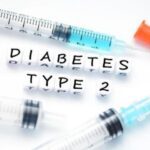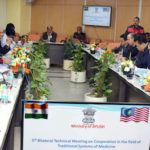- Dr Singh advocated for matching family health history before marriage to mitigate the risk of diabetes in pregnant women as well as future generations.
- He unveiled the guidelines for ‘Diagnosis & Management of Gestational Diabetes Mellitus (2021)’, prepared by Diabetes in Pregnancy Study Group of India (DIPSI).
- The launch took place at the inaugural Diabetes in Pregnancy Summit by the Integrated Health and Wellbeing (IHW) Council in partnership with Asian Research and Training Institute for Skill Transfer (ARTIST).
- The massive campaign to raise awareness about diabetes in pregnancy forms a crucial part of IHW Council’s ‘Shapath 1000 days’ program to help prioritise the health of women and children.
India
healthysoch
New Delhi, March 10, 2021:
Noting that the rising incidence of diabetes in youth can hinder the country’s progress, Dr Jitendra Singh, Hon’ble Minister of State for Prime Minister’s Office, Government of India today said that the government is ‘firmly focussed’ on addressing non-communicable diseases and taking all steps so that the young India can fully realise their potential and fuel growth.
Joining the inaugural Diabetes in Pregnancy Summit by the Integrated Health and Wellbeing (IHW) Council in partnership with Asian Research and Training Institute for Skill Transfer (ARTIST) from Assam, Dr Jitendra Singh, Hon’ble Minister of State for Prime Minister’s Office, Government of India, says, “We are firmly focused on addressing non-communicable diseases as India faces a rising burden of type II diabetes and gestational diabetes. The increase in type II diabetes in youth in India is more concerning as it leaves longer years to care for heart and kidney. Gestational diabetes is a concern because it is related to diabetes in youth – before marriage, families must match their health history beside matching horoscopes of the couple.”
Dr Singh, an endocrinologist, unveiling the guidelines for ‘Diagnosis & Management of Gestational Diabetes Mellitus (2021)’, prepared by Diabetes in Pregnancy Study Group of India (DIPSI), said, “It is a revolutionary social concept to mandate that pregnant women being tested for diabetes need not fast, especially in a diverse society like India. Our objective must be ‘Prevent before it begins’ and this objective can be achieved through the DIPSI guideline. The DIPSI guidelines are now recognized by the World Health Organization (WHO) too.”
With nearly 4 million pregnancies in India complicated due to gestational diabetes every year, the guidelines come at a crucial time and details methodologies that are point-of-care in nature and can be implemented with minimum equipment, therefore, making them suitable for rural areas. The reported prevalence rate of GDM in India is between 4.6% – 14% in urban areas and 1.7% – 13.2% in rural areas. Federation of Obstetric and Gynaecological Societies of India (FOGSI) and Diabetes in Pregnancy Study Group of India (DIPSI) support the summit forms a part of IHW Council’s overarching ‘Shapath’ initiative that focuses on reducing prevalence of anaemia in India substantially from the NFHS-4 level in next 3 years.
Prof (Dr) Seshiah. V, Founder Patron, Diabetes in Pregnancy Study Group of India (DIPSI)and a key proponent of gestational diabetes screening in India, says, “In the 1970s, nobody knew that one can get diabetes during pregnancy that can go away with childbirth. Our mantra must be ‘Focus on the foetus for future’. Screening all pregnant women is just the first step. We must take care of her nutrition and control her glucose level and blood pressure too.”
“Diabetes in pregnancy is a major public health problem in India. The magnitude of gestational diabetes in India is such that we need multispecialty professionals to address it who are adept in multitasking. Where there is a will, there is a way – rest is all an excuse,” says Dr Hema Divakar, CEO, Asian Research and Training Institute for Skill Transfer (ARTIST) and a member of IHW Council’s Apex Advisory Body.
“India is not only the diabetes capital of the world but has one of the highest numbers of gestational diabetes cases as well that hampers the health and safety of expecting mothers, her unborn child and the new-born. Defeating diabetes is important for a fit India and Swasth Bharat. The massive campaign to raise awareness about diabetes in pregnancy forms a crucial part of our ‘Shapath 1000 days’ to help prioritise the health of women and children in every household,” says Mr Kamal Narayan, CEO, Integrated Health and Wellbeing (IHW) Council.
“The burden of type II diabetes in India is expected to reach 79.4 million but concepts like pre-and inter-conception counselling are not well taken in our society. A FOGSI study shows that 87% of its agreed that couples should undergo premarital investigation to help prevent the increasing numbers of people developing. It is notable that children born to mothers with diabetes pregnancy are 4 to 8 times prone to develop diabetes as compared to their siblings born of non-GDM pregnancies,” says Dr Alpesh Gandhi, President, Federation of Obstetric and Gynaecological Societies of India (FOGSI).
healthysoch






